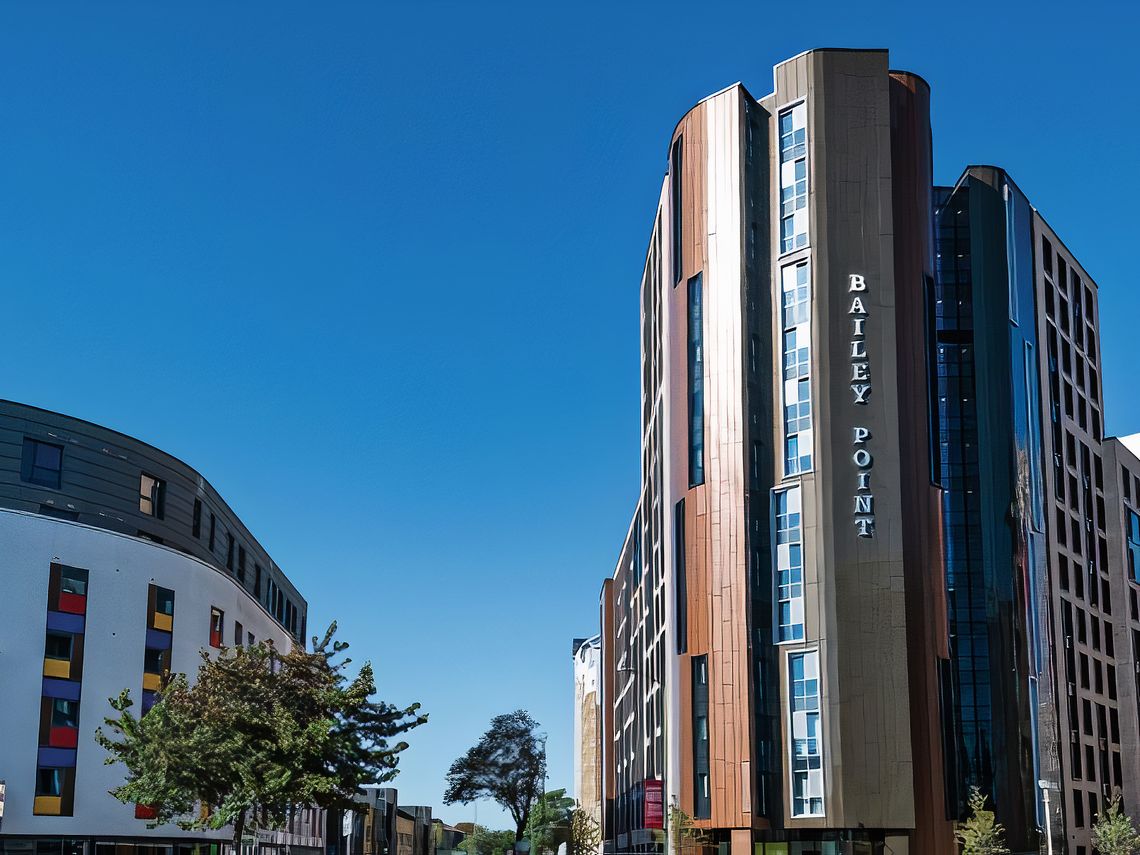Whenever there is a topic of student accommodation coming up, most often you hear about, well… residence halls or dorms offered by a university (or college, whatever you are applying for!). But I feel that there is not enough discussions floating around when it comes to renting a private house somewhere in Bournemouth. And hence, this is the reason behind why I would like to talk about this exact topic in this blog! I will share my own experience, tips to remember as well as upsides and downsides that living in a private accommodation has or potentially may have.
What I say here is about Bournemouth, but I think the same principles apply to other places and universities too!

My personal experience
To begin with, I will probably start with a bit of a background story of how I ended up living in a private house. When I first applied for the university, I also considered choosing student accommodation that is offered by BU. However, what I was worried about was the price, which seemed a bit too high to me, so I decided to look it up if there is some cheaper alternative. I found two options. So-called “unilet” and a private accommodation at a website called spareroom.
I decided to proceed with the latter option because it cost per week was smaller, and the room looked spacious. Unfortunately, sounds odd, but me and a landlord there couldn’t agree over key collection time and so the contract was never signed in the first place and I had to look for other option. It was unilet, i.e. private house that are owned by BU, the university itself. At the same time, this post is not really about unilets, but if you want more information, look it up here.
Fast forward, I found out there is no way for me to be at the same house for the summer time, and I started to look up private accommodations again, using the same website. In the end, after visiting a few houses I found a house that I ended up staying to this day. It’s located not that far away from the uni as well as my previous house and its price was pretty affordable, around £95 per week for a double sized bed, much cheaper that most of the other options. It is essentially the same as unilet that I was living at, although initially the landlord was somewhat restrictive but after some negotiations and time she became more understanding. Overall, I am more satisified rather than not, I become good friends with one of my flatmates (who turned out to be from the same country as I am) and the location is pretty good for both part-time jobs and the university. So why exactly I think it is worth to consider private renting and what exactly disadvantages there could be? Here are few positive and negative sides that I can think of!

Good and bad sides of the coin
Pro’s
✓ Cheaper than nearly all of the accommodations that are offered by the universities with the same or bigger amount of space or utilities.
✓ Flexibility when it comes to location. It can be useful if you have or plan to have a part-time job and need a location that is slightly closer to it.
✓ Possible to meet people of all backgrounds and occupations, not just students.
✓ May be your only option if you have a pet.
✓ Perfect if you are coming with a group of friends and want to share the same accommodation.
Con’s
✖ Some landlord may be way too restrictive.
✖ Penalties may be extremely harsh if you unable to pay your rent fee on time (some landlord may choose evictions, it depends on the personality and their financial circumstances).
✖ Very difficult to find an accommodation, if you want your housemates to be exclusively students.
✖ Quite a good number can require a guarantor which can cost you additional money if you can’t use your parents as guarantors.
Wait, a guarantor? Yes! A private landlord can require a guarantor or paying rent for 6 months ahead before letting you in. Why so? Because we’re talking about students, not all of them are very confident with one’s ability to meet their financial obligations (in simpler terms, paying on time). Guarantor is someone whom the landlord will contact in case you can’t pay for your accommodation. Most of the time people just use their parents as their guarantors, but unfortunately, sometimes it may not be an option and you will have to resort to private guarantors. The overall cost can be calculated from the cost of your rent or some fixed amount, for example £40 per month. They will pay if you can’t, but you still will need to repay the amount you owe. Not to a landlord, but to a private guarantor company. Sadly, I never used one so can’t tell really much or recommend you one, just be aware of this requirement. Do I really recommend you using one or finding landlords that don’t require you to have a guarantor? Well. It depends. If you are infallibly sure that you can pay your rent on time, then you may go for it, however, if you are not sure or need some extra protection, then better to have a guarantor. Someone who is known to you is way better than a private one.
Things to remember
It’s very important to be careful when renting a property. Pay attention not only to what sort of people are you going to live with, but also whether an offer that you see on a website is genuine. If something is too good to be true, then it most definitely is. Having a written contract is not something mandatory, it’s possible to have a verbal one where you simply agree in person, but having a verbal contract without explicitly written rules and agreements can make it very hard to protect your rights with the local council in case landlord is very restrictive or breaks their own promises/duties.
On top of that, never pay anything before you inspected the house in person. It sounds very basic, but it always surprises me how many people can fall victim of the most banal and generic scams. If someone insists you must pay before you can see the house, it is a more than 100% indicator it is a scam. Avoid at all costs. Most of the big websites (that will be listen in “find out more” section) are filtered to exclude any of this from making its way to ads section, but some of them may be relatively new and so it is better to be careful. Morever, when inspecting your hopefully future-to-be-house, make sure you check whether utilities and appliances are properly working and functioning. Some landlords may repair them swiftly without any charges, whereas others can undertake absolutely no action and charge you for that. In shorter words, ensure that the house is in good condition. Aaand, that’s pretty much all to it! Hopefully it was useful to you, and if you have any further questions, do not hesitate to contact me! Have a good whatever part of the day you are reading it at! 🙂
Find out more information
https://england.shelter.org.uk/housing_advice/private_renting/guarantors_for_private_renters

 Being an international student at BU
Being an international student at BU Packing your life in under 23kgs: Top tips for international students
Packing your life in under 23kgs: Top tips for international students From a final year, to a first year
From a final year, to a first year Mental well-being and why it’s important for international students
Mental well-being and why it’s important for international students








